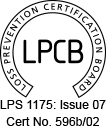Stress at Work Policy
Stress at Work Policy
Policy Statement
Asgard (A trading Division of Flexiform Business Furniture) are committed to identifying, tackling and preventing the causes of work-related stress and to providing appropriate support and consideration to staff suffering from stress, on a confidential basis where appropriate. In particular, we will:
- Promote a culture of open communication, participation and encouragement. Through training, effective planning and allocation of workloads and ensuring feedback is provided on performance, we want staff to develop their skills and confidence and to feel able to raise any concerns they have about their work or working environment.
- Use staff development, staff support systems and policies reflecting current good practice to help staff understand and recognise the causes of stress and to address work-related stress and the impact of external stressors at work.
- Provide a workplace free from harassment, bullying and victimisation.
- Address violence, aggression and other forms of inappropriate behaviour through disciplinary action.
- Ensure risk assessments include or specifically address workplace stress.
- Maintain an appraisal process to ensure the suitability of workloads, supported by a capability procedure.
- Facilitate requests for flexible working where reasonably practicable in accordance with our flexible working policy.
- Follow comprehensive change management procedures.
- Provide support for staff affected by or absent by reason of stress.
You must ensure that you familiarise yourself with the policy and act in accordance with its aims and objectives. You must speak to your manager if you experience or are aware of a situation that may lead to a stress problem. You must plan and organise your work to meet personal and organisational objectives and co-operate with support, advice and guidance you may be offered by your line manager.
What is stress?
Stress is the adverse reaction people have to excessive pressures or demands placed on them. Stress is not an illness but, sustained over a period of time, it can lead to mental and/or physical illness.
There is an important distinction between working under pressure and experiencing stress. Certain levels of pressure are acceptable and normal in every job. They can improve performance, enable individuals to meet their full potential and provide a sense of achievement and job satisfaction. However, when pressure becomes excessive it produces stress.
Pressures outside the workplace, whether the result of unexpected or traumatic events such as accidents, illness, bereavement, family breakdown or financial worries, can result in stress. They can also compound normal workplace pressures.
We recognise that what triggers stress and the capacity to deal with stress varies from person to person. Individuals react to similar situations in different ways.
Legal obligations
We have a legal duty to take reasonable care to ensure that your health is not put at risk by excessive pressures or demands arising from the way work is organised.
This policy takes account of our obligations under the Health and Safety at Work Act 1974, Management of Health and Safety at Work Regulations 1999, Employment Rights Act 1996, Protection from Harassment Act 1997, Working Time Regulations 1998 and Equality Act 2010.
Support
We may run training courses and workshops from time to time to assist staff and managers to recognise and cope with stress.
Managers should provide support to staff suffering from stress. They should:
- Promote a culture of open communication and encouragement.
- Effectively plan and provide feedback on performance.
- Ensure that staff receive necessary training.
- Monitor workloads and reallocate work where necessary to avoid harmful levels of stress.
- Ensure that staff understand the standards of behaviour expected of them and others, and act on behaviour that falls below those standards.
Resolving stress
If you believe you are suffering from stress you should discuss this with your manager in the first instance. If you feel unable to do so you should speak to a more senior manager.
Once an issue affecting your health comes to the attention of your manager, steps will be taken to address that issue. Those steps may include any of the following:
- A workload review, reallocation of work, monitoring of future workload or possible redeployment. Our capability procedure may be applied.
- Where appropriate, investigation under our disciplinary and/or grievance procedures.
- Referral for medical advice, treatment and/or a medical report to be provided by any specialist or GP who has been treating you or we may choose to refer you to an occupational health adviser.
- If you are on sickness absence, discussion of an appropriate return to work programme. Our attendance policy may be applied.
Absence due to stress
If you are absent due to stress you should follow the sickness absence reporting procedure contained in your contract and/or our attendance policy.
In cases of prolonged or repeated absence the procedure set out in our attendance policy and/or capability procedure will apply.
Confidentiality
Confidentiality is an important part of this policy. Every member of staff is responsible for observing the high level of confidentiality that is required, whether they are suffering from stress, supporting a colleague who is suffering from stress or because they are otherwise involved in the operation of a policy or procedure dealing with stress.
Breach of confidentiality may give rise to disciplinary action.
However, there are occasions when matters reported by a member of staff suffering from stress may have to be put to third parties. For example, where duties need to be reallocated within a team or where, as the result of reported bullying or misconduct, a disciplinary investigation and/or proceedings take place. If this is the case, matters will be discussed with the member of staff concerned before any action is taken.
Protection for those reporting stress or assisting with an investigation
Staff who report that they are suffering from stress, who support a colleague in making such a report or who participate in any investigation connected with this policy in good faith will be protected from any form of intimidation or victimisation.
If you feel you have been subjected to any such intimidation or victimisation, you should seek support from your line manager. You may also raise a complaint in accordance with our grievance procedure.
If, after investigation, you are found to have provided false information in bad faith, you will be subject to action under our disciplinary procedure.





















